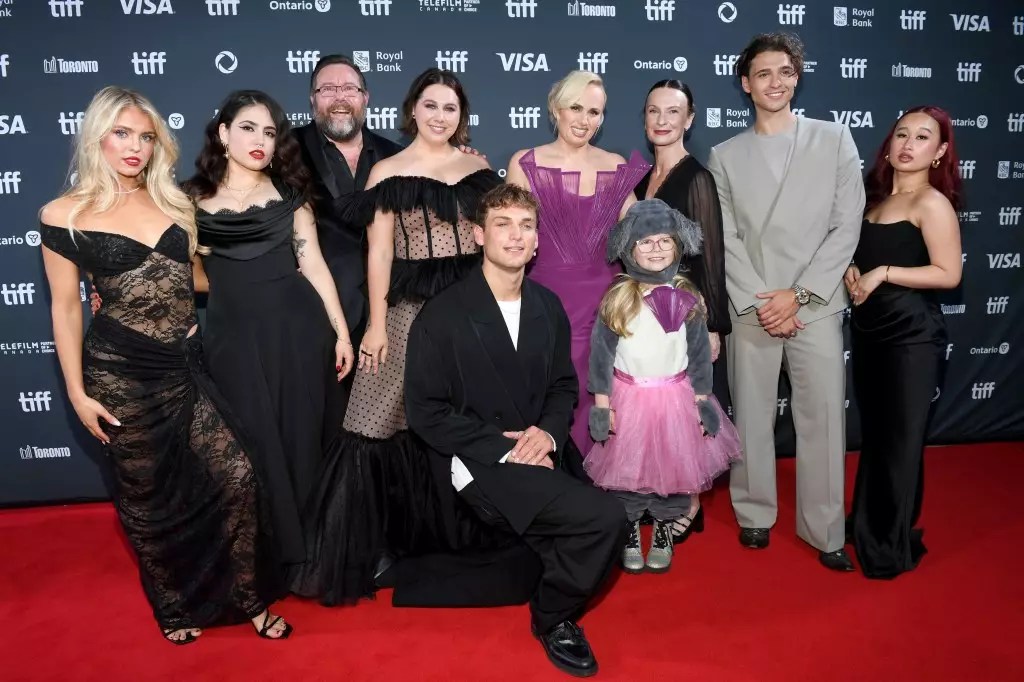Rebel Wilson, the internationally acclaimed actress and director, has recently emerged at the center of a turbulent legal confrontation sparked by allegations of misconduct in the production of her film, *The Deb*. The situation escalated following the highly publicized world premiere at the Toronto Film Festival, where tensions flared between Wilson and the film’s producers. Wilson’s decision to file a counter-complaint reveals her unwavering stance against a perceived culture of bullying and intimidation prevalent in the entertainment industry. The counter-lawsuit underscores a critical examination of power dynamics in Hollywood and reveals an ongoing struggle for accountability that resonates far beyond Wilson’s individual case.
The conflict began earlier this summer when Wilson publicly accused three co-producers—Amanda Ghost, Gregor Cameron, and Vince Holden—of inappropriate behavior and mismanagement. Her accusations encompassed an array of serious claims, including fraud and sexual misconduct. Although these allegations sent ripples through the film’s community, the producers initially responded with aggression, labeling her claims as “false” and “disappointing.” However, instead of retreating, Wilson opted to assert her voice more forcefully, thus igniting a legal battle that many see as a fight not just for herself, but for all individuals who have been marginalized in similar circumstances.
According to Wilson’s legal representatives, her counter-complaint filed on September 26 outlines a pattern of egregious actions committed by the producers and, crucially, highlights the tactics of intimidation employed against her. Importantly, the filing seeks unspecified damages and aims to expose what Wilson describes as a culture of manipulation and coercion. It raises critical questions about accountability and responsibility within Hollywood, particularly regarding how powerful figures can sometimes escape scrutiny.
Wilson’s move conveys more than personal grievances; it acts as a clarion call for systemic change. When she asserts, “I am determined to fight not only for myself but also for The Deb and all those who have silently suffered,” she articulates a sentiment that reflects an urgent need to reevaluate norms within the industry. Many in the film world have experienced similar abuse and exploitation, often suffering in silence due to fear of repercussions. Wilson’s empowerment and willingness to stand up not only opens the door for dialogue but also provides a platform for others to share their own experiences.
The nature of Wilson’s counter-complaint illustrates the complexities of navigating disputes within an industry frequently marked by hierarchical power structures. Traditionally, individuals have hesitated to challenge authority for fear of professional ruin, yet Wilson’s case illustrates the potential rewards of confronting wrongdoing. By publicly engaging in this legal struggle, Wilson not only asserts her own rights but also aims to dismantle the protective shields around predatory behavior.
The grievances outlined in Wilson’s lawsuit are reflective of a broader pattern in the entertainment industry, where fear, intimidation, and silence often dominate the discourse. The very fact that multiple witnesses have come forward to corroborate Wilson’s claims indicates that systemic issues may be at play, questioning the ethical standards of those behind the camera. One must contemplate whether the incident will inspire significant changes in how complaints of misconduct are treated in Hollywood, pushing for transparency and a safer environment for all.
Rebel Wilson’s legal battle is far from over. As her attorney Bryan Freedman remarked, what has come to surface thus far may only be “the tip of the iceberg.” This persistent legal struggle hints at a deeper exploration of a culture steeped in secrecy and lack of accountability. As the narrative unfolds, audiences and industry insiders alike are called to listen, learn, and advocate for change. Wilson’s fierce defense is more than a fight against individual wrongdoings; it embodies a much-needed reckoning within an industry eager to hide its flaws beneath the glitz and glamour. In this legal saga, that pursuit of truth and justice might just pave the way for a more equitable future in storytelling.


Leave a Reply